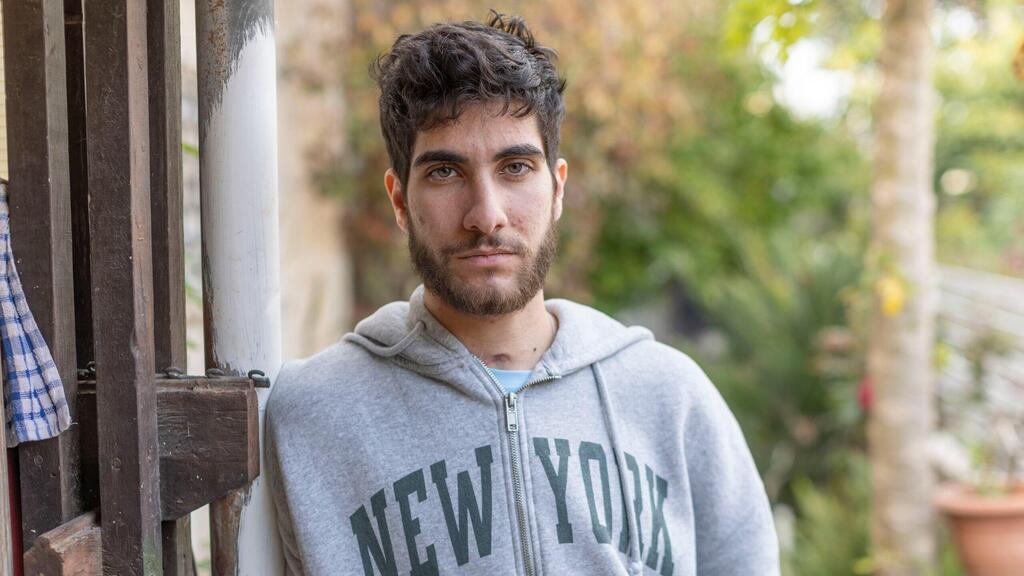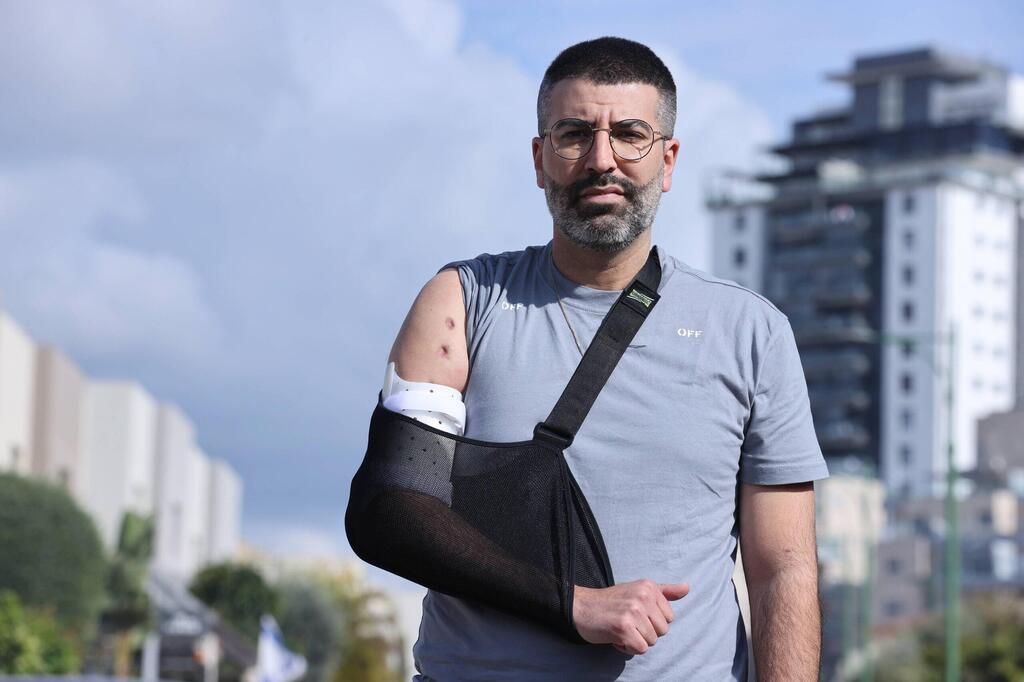Ofek Yanon, a 21-year-old from Kfar Saba, was injured in Gaza in November. Throughout his treatment, the severity of the injury wasn't clear. "I was in a coma and respirator for a month. When I woke up, I was a different person. I cursed even though I'm not that kind of person at all. Because I had tubes connected to my body, I kept pulling them out all the time."
When he woke up from the coma, changes in his behavior pointed to a brain injury. Like him, many other war wounded suffered from brain injuries, a problem that affects the quality of life but is sometimes not properly diagnosed.
The Neurological Association warns of a widespread phenomenon of coping with the consequences of brain injuries among wounded IDF soldiers. Unlike other injuries, in many cases, the affected individuals never even make it to hospitals and deal with a range of symptoms for months, including depression, anxiety, cognitive problems, confusion, memory loss, extreme behavioral changes, and other symptoms.
Research conducted by Dr. Rachel Gardiner, Director of Clinical Research at the Sagi Center for Brain Sciences at Sheba Medical Center, paints a particularly troubling picture: about 60% of war casualties in rehabilitation experience various degrees of brain injuries. What's more concerning is that some of them were not identified with brain injury in routine CT scans, or were not subjected to examinations of it beforehand.
"People who experience mild head injuries, even when their CT scans are normal, often suffer afterward from a range of symptoms such as headaches, sleep disturbances, dizziness, memory problems, or more psychological symptoms like depression and anxiety. They don't always suffer from everything," Prof. Gil Ifergan, Director of the Neurology Department at Soroka Medical Center, said.
"This is the first time we are exposed to such a phenomenon on such a large scale. One of the main problems is that without an accurate diagnosis, and sometimes without any diagnosis at all, professionals believe it's a psychological problem. Many people return from the military, and when they complain of symptoms related to brain injury, we talk to them about the psychological aspect, when in fact it's an event with physical aspects."
"A significant percentage of cases are missed. We're talking about soldiers who didn't even make it to the hospital and are suffering. But now we're working with the military doctors and changing return-to-duty protocols," Dr. Anton Peled, a senior neurosurgeon and director of the Head Injuries Unit at Sheba, says.
Injured soldier Ofek Yanon is still grappling with the aftermath of his injury. "I was in the vicinity of Al-Shifa Hospital, and we lived in a makeshift shelter," he recounts. "I was hit by shrapnel, and all the bricks fell on me. I suffered a head injury from the blast, and part of the building collapsed on me. At the moment it happened, I was no longer conscious. As I my breathing recovered during rehabilitation, memories began to return. They told me I had a concussion from the blast. I exhibited strange behaviors that don't usually characterize me. Today, in terms of my thinking and cognition, because I received treatment then, there seems to be no problem. But I definitely know I have a memory issue. I lost memory, and even now when things are told to me, I struggle to remember."
Police officer Harel Amar, 35, from Ashkelon, also grappled with a severe brain injury. "I was on morning duty on October 7 at the police station in Sderot. When I arrived for my shift, the gunfire began," he said.
"I quickly realized we faced terrorist infiltration, and minutes later, grenades were thrown at us, and I was hit by four bullets. After being injured, I lay there for hours until I was evacuated, and later I was taken to Sheba Medical Center. I was hit in the head and hands, with shrapnel all over my body."
He recalls that when he regained consciousness, he understood he had been hit in the head: "My speech was slightly affected, and so was my vision. Cognitive thinking was also affected, and I was told it was a result of the brain injury I suffered. I was initially in orthopedic rehabilitation, but to this day, most of the treatment addresses the head and the injury to my right hand. I have shrapnel on the nerve of my vision. When they assess my cognitive thinking, they see there's impairment."




